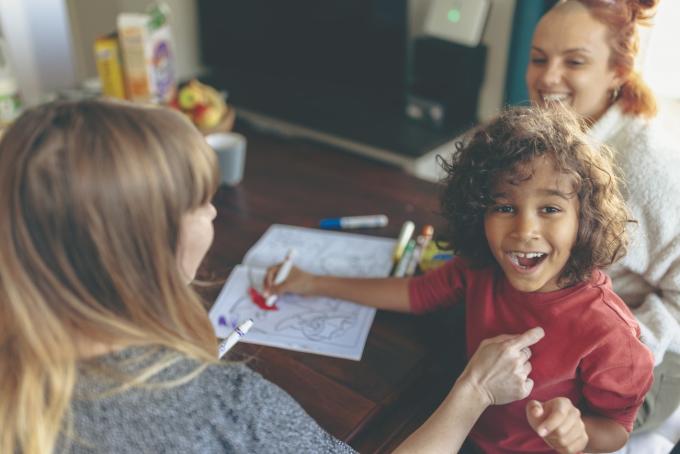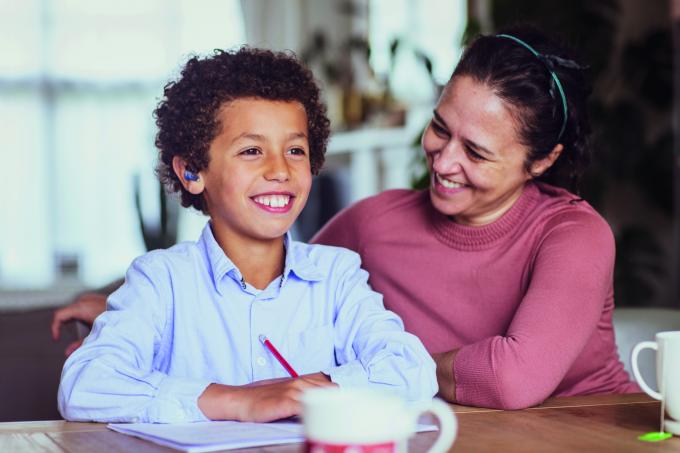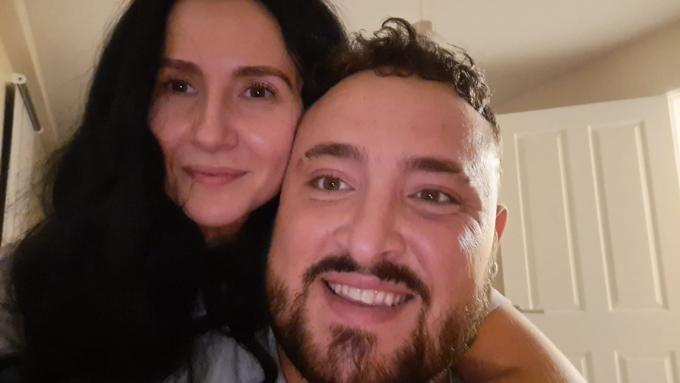Robert and Patricia, from the Northeast, have been short break and emergency foster carers since 2012. The couple felt they had room in their heart and home when they got in touch with us to find out how to get involved with fostering.
“I believe every child should be happy”
Foster carers help provide children and young people with a safe and loving place they can call home and feel like they belong. “I believe every child should be happy and it’s your duty as a foster carer, whether it is short or long term, to make sure that the child you’re caring for is happy, feeling secure, and has a constant roof over their head,” Patricia says.
Patricia, who worked previously as a paediatric nurse and then in a school working with children with special educational needs, felt like she had skills that would help her to be a good foster carer. “I was quite open to having children with any kind of disability or needs because I worked with children. You don’t need to have that kind of experience, but I felt like it would be helpful on my journey through fostering,” she says.
I feel I’ve been absolutely rewarded doing it in every sense. I can only say that the children bring more to me than I felt I gave them. Every time a child went home, the house would feel a little empty.
Patricia
Foster carer
What is the fostering process like?
We know that fostering is a big decision, but it’s one that can change your life and a child’s life for the better. It’s also a decision that can impact the rest of your family, which is why family members are involved in the fostering process.
“The fostering process certainly made us reflect on ourselves as a couple and as a family. Each of our children were interviewed as well because it’s important to make sure that everybody is on board, so that it’s not just you wanting to do it and the rest of your family is against it,” Robert says.
What support and training is available to foster carers?
“We have three major points of contact, and a phone number and email for each of them. They answer their emails straight away, so there is a good support structure,” Robert continues.
“[Barnardo’s] support you with ongoing training programmes which are excellent, and I would recommend them to anyone thinking about embarking on a fostering journey.”
What skills do you need to be a foster carer?
Our foster carers come from all walks of life, bringing unique skills and experiences that help them to meet the needs of children. Thinking about the skills she’s developed since becoming a foster carer, Patricia says, “I’ve learned to look into myself more, to take a step back and that helps you find your strengths you didn’t even realise you had.
“I don’t know if I’ve always been a good listener, but I am now because you have to be able to listen. Sometimes [you can tell] when a child doesn’t really want your response, they just want to know they are being heard, they want you to sit down and make time for them.”
Robert adds, “I have always offered humour, making them laugh. It breaks down the barriers. One child wouldn’t speak in the beginning, but she started giggling within half an hour, and she wanted to be friends and decided she liked it here.”
Reflecting on the joy foster caring brings
“In the beginning, you hope it’s the right role for you, but you don’t know,” Patricia says, “but over the years when you reflect back on it, you think my goodness I have enjoyed this so, so much!”
“And afterwards, we get texts, cards, letters saying where the children are now and thanking us for the time they had with us,” Robert continues. “After a mum got her two children back that we had been caring for, she asked us to come over to her house where she gave us roses and cards!”

Fostering process
People can feel intimidated by the process of becoming a foster carer and worry that it will take a long time or be invasive. We want you to know that if you take the decision to foster we’re here to help you every step of the way.

Types of foster care
We provide several types of fostering to ensure we can support and meet each child and young person’s individual needs. This can range from offering a planned break for a young person to try new experiences, to offering a child a stable and loving family setting for several months or years.

James: “I'm living proof that fostering makes a difference"
When James was 14 he was put into emergency foster care. Thanks to some dedicated carers and a supportive Barnardo’s project worker he was able to finish school and college, get a place of his own and start his career. He’s now a Barnardo’s project worker, using his experiences to help other young people.

